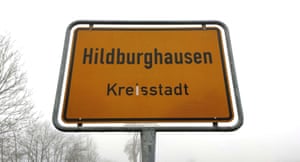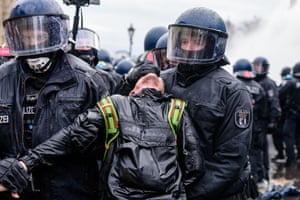The U.S. Centers for Disease Control and Prevention (CDC) on Friday reported 12,823,092 cases of new coronavirus, an increase of 324,358 cases from its previous count, and said the number of deaths had risen by 3,668 to 262,673.
The CDC reported its tally of cases of the respiratory illness known as COVID-19, caused by a new coronavirus, as of Thursday afternoon compared to its previous report on Wednesday.
The CDC figures do not necessarily reflect cases reported by individual states.
Barcelona football club have reached an agreement with representatives of their players and coaching staff to temporarily cut salaries and postpone bonuses due to the financial impact of the COVID-19 pandemic.
The Spanish club said it expected to save around 172 million euros ($205.61 million), with 122 million from reductions to fixed wages this season and a further 50 million euros through the deferral of bonuses for three years.
This principle of agreement is pending ratification in the coming days by the group of players and technical staff affected,” the club said in a statement.
“The agreement, if it is ratified, will represent a milestone of great importance in redirecting the current economic situation.” Barcelona imposed a temporary pay cut of 70% earlier this year lasting the duration of the national state of alarm, which began in March and ended in June.
Thw World Health Organisation’s director general on an exercise bike to deliver his message on remaining physically active during the lockdowns.
World Health Organization (WHO)
(@WHO)“#COVID19 has resulted in restrictions of many types – but everyone can remain active, whether that’s doing a workout at ? or going out for a ?, a ? or a ?
. It’s one way all of us can add years to life & life to years. Every move counts”-@DrTedros https://t.co/1xIf1yxkmK
Canada has a deal to buy at least 20 million doses of Pfizer’s vaccine.
Toronto is on lockdown and the country’s largest province of Ontario reported a record 1,855 cases on Friday.
Prime minister Justin Trudeau said Canada has signed deals that could give Canada the most per capita vaccines in the world.
And he said the military will play a role in distribution of the vaccine. An army general will oversee it.
This will be the biggest immunisation in the history of the country.”
The chief medical adviser at Health Canada said Pfizer’s vaccine candidate could be approved in Canada next month.
The U.S. Food and Drug Administration is meeting December 10 to consider whether to give the go-ahead to Pfizer.
Canada’s prime minister Justin Trudeau said he expects more than half of Canadians to receive a Covid-19 vaccine by next September after he came under criticism for saying the country will not be among the first to get doses.
Trudeau said earlier this week Canada will have to wait for a vaccine because the first ones are likely to be given to citizens of the countries they are made in.
He noted the US, UK and Germany have mass vaccine-production facilities but Canada does not.
Trudeau said he expects vaccines to start arriving early next year — but what month Canadians will get the first doses remains an open question.
I can understand the eagerness, that people want to know when is this going to be over.”
Summary
The latest headlines in our worldwide coronavirus coverage include:
- Europe remains the centre of the pandemic, with an average of 236,900 new case daily – far ahead of the US and Canada’s 174,000 a day. But the rise in infections has slowed for the second week in a row, falling back 10% with many countries in lockdown.
- The number of Covid0-19 patients being treated in hospitals across the United States nearly doubled in the past month, reaching 90,000 on Friday. The rate of hospitalizations – now at the highest level since the pandemic began – has reportedly pushed some hospitals beyond capacity.
- Italy will ease coronavirus restrictions in five regions, including Lombardy, the country’s richest and most populous region, from Sunday. Lombardy, Piedmont and Calabria will be downgraded from red to orange zones, while Sicily and Liguria will be designated as yellow rather than orange zones.
- Another 827 Covid 19-related deaths were reported by Italy on Friday, the highest number so far of its second wave coronavirus outbreak, and 28,352 new infections, the health ministry said. The rise in hospital admissions and intensive care occupancy has slowed.
- Russia reported a record high of 27,543 new coronavirus infections, including 7,918 in the capital Moscow, bringing the national tally to 2,215,533. Authorities also reported 496 deaths related to Covid-19 in the last 24 hours, pushing the official death toll to 38,558.
- Iran reported a new daily record in coronavirus infections, as the country tightened its pandemic measures even further by all but closing government offices for an indefinite period. Iran recorded 14,051 new cases of coronavirus, bringing the total to 922,397, and 406 deaths.
- In Cyprus, authorities in the war-divided island’s south have announced new curbs on movement including a nationwide nighttime curfew. While the government had decided to end local lockdowns across the island’s entire south-west, it will introduce a nationwide nighttime curfew as of 30 November.
- Brazilian president Jair Bolsonaro has said he will not take a coronavirus vaccine, the latest in a series of statements he has made expressing skepticism toward coronavirus vaccination programs. “I’m telling you, I’m not going to take it. It’s my right.”
- AstraZeneca may begin another trial of its vaccine. The company, which is developing a treatment with Oxford University, is working with regulators to investigate a lower dosage of its vaccine that performed better than a full dosage.
- Public health authorities in Switzerland have advised the public against oom-pah brass bands this Christmas. “Singing together and playing wind instruments can increase the risk of infection,” the federal office of public health said. Bands are usually a common sight at Christmas events and parties across Switzerland.
- Denmark plans to exhume and burn 17 million mink slaughtered to curb the spread of a mutant strain of coronavirus. The decision comes after hundreds of dead mink, tipped into trenches at a military site in western Denmark, began rising from the grave as a result of gases from their decomposition.
And that’s it from me, Damien Gayle, for today.
Health authorities in France have reported a further 957 deaths from Covid-19, the biggest single day rise in deaths in the country since mid-April. It comes the day before shops can resume selling non-essential goods.
Another 12,549 coronavirus infections were detected, health ministry data showed, a significant slowing in the spread of the virus compared to earlier in the month. Last Friday 22,882 infections were detected.
The cumulative reported total now stands at over 2.19 million. The total death toll is 50,957.
Updated
Ireland to reopen shops, restaurants and gyms next week
All shops, restaurants, gastropubs and gyms will reopen in Ireland next week, and travel will be permitted between its 26 counties from 18 December, the prime minister, Michael Martin, said on Friday.
Ireland was one of the first European countries to reimpose stringent coronavirus containment measures six weeks ago, when the government shut many retailers and limited pubs and restaurants to takeaway service.
Pubs that serve only drinks will remain shut across Ireland and be given additional financial support. People can welcome up to two other households into their homes between 18 December and 6 January.
A politician in Germany has been placed under police guard after facing death threats over restrictions imposed in his town in an attempt to contain the spread of Covid-19.
Thomas Mueller, a lawmaker in Hildburghausen in central Germany, has been under guard since Thursday after being threatened and insulted on social media, “presumably in connection with the Corona protection measures”, police said.
With more than 600 new cases per 100,000 inhabitants over the past week, Hildburghausen, a town of 12,000 inhabitants in Thuringia, has the highest coronavirus infection rate in Germany.
The town introduced a strict lockdown on Wednesday, with schools and kindergartens closed and residents only allowed to leave their homes for specific activities. That night, police used pepper spray to disperse around 400 protesters who had gathered in the town centre to protest the measures.

Hildburghausen has the highest coronavirus infection rate in Germany. Photograph: Reuters Tv/Reuters
Police were also called to a testing centre on Thursday evening after being alerted to calls on social media to block the entrance.
Demonstrations against Covid-19 restrictions have grown increasingly tense across Germany in recent weeks, with protesters often clashing with police.
At a rally of nearly 10,000 people in Berlin last week, 77 police officers were injured as they used pepper spray and water cannon to disperse the crowds, making 365 arrests.

A protester is arrested in front of the Brandenburg Gate during a coronavirus protest in Berlin last week. Photograph: Jan Scheunert/ZUMA Wire/REX/Shutterstock
Police chief Barbara Slowik told the Tagesspiegel daily that “we have not experienced something like that in decades”.
“We are moving away from a very colourful public and are now increasingly dealing with a spectrum of people who generally reject our system and are prepared to use extreme violence,” she said.
Updated
The number of Covid0-19 patients being treated in hospitals across the United States has nearly doubled in the past month, reaching 90,000 on Friday – ahead of Christmas gatherings expected to propel another rise in infections.
The rate of hospitalizations – now at the highest level since the pandemic began – has pushed some hospitals beyond capacity, and comes after weeks of rising infection rates across the country, according to Reuters.
Many health experts and politicians pleaded with Americans to refrain from gathering for their traditional communal Thanksgiving feasts this year. They warned that socialising would accelerate the rate of transmission and push an already strained healthcare system to the brink.
On the day before Thanksgiving, typically one of the busiest travel days of the year in the United States, more than a million people travelled through US airports – the most of any single day since the start of the pandemic, according to the Transportation Security Administration.
Nearly 6 million Americans traveled by air from Friday to Wednesday, it said, a number that is however less than half that of the same period last year.
State governors have also urged Americans to stay home on Black Friday, a traditionally busy holiday shopping day, encouraging them instead to take advantage of online deals and support business that have suffered during the pandemic-related economic downturn.
“Remember, skip the crowds and shop from home this Black Friday. Our local shops have curbside pickup options and need our support,” the Kentucky governor, Andy Beshear, wrote in a tweet on Friday.








